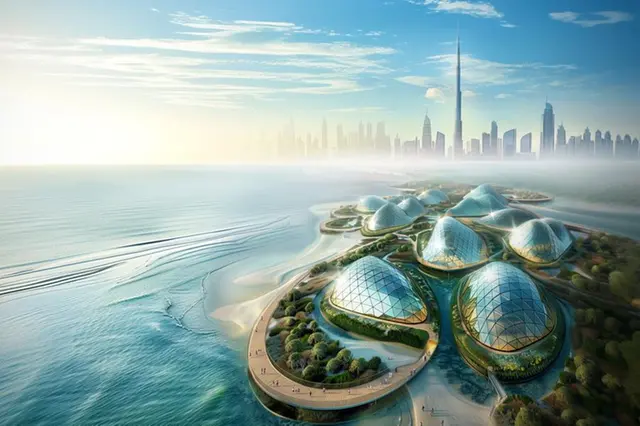URB, the creator of the Dubai Reefs Project and The Loop in Dubai, announced plans for the Dubai Mangroves project this week. If it goes ahead, the initiative will see the emirate’s coastline planted with 100 million mangrove trees.
Spanning 72 km, the project is set to be the world’s largest coastal regeneration project, according to the developer, and is currently in the design and research stage.
Indeed, URB shared that it is currently conducting six pilot design studies across:
- Jebel Ali Beach
- Dubai Marina Beach
- Jumeirah Public Beach
- Umm Suqeim Beach
- Mercato Beach
- Dubai Islands Beach
The developer shared that these sites were strategically chosen to “test and refine the methodologies for mangrove restoration” and “explore the integration of various infrastructural elements that support both the ecosystem and community needs.”
URB said that with the capacity to absorb 12.3 kg of CO2 annually per tree, the entire project could sequester 1.23 million tonnes of CO2 each year – equivalent to removing the CO2 emitted by more than 260,000 gasoline-powered passenger vehicles from the roads yearly.
The project details plans for a Nature Reserve Conservation Center, an educational Mangrove Visitor Hub, the Botanical Museum. Also featured in the plans are pocket beach parks and social spaces, beach sports facilities, habitats for wildlife, areas dedicated to biosaline agriculture practices, and integrated running and cycling tracks.
Baharash Bagherian, CEO of URB, comented: “Dubai mangroves is a testament of how urban and environmental innovation can work in harmony as a model for cities worldwide, demonstrating the transformative power of integrating ecological preservation with urban growth. Yet this project is much more than coastal regeneration or resilience; it’s about setting a global standard for how cities can balance the needs of the planet with the needs of the people.”



